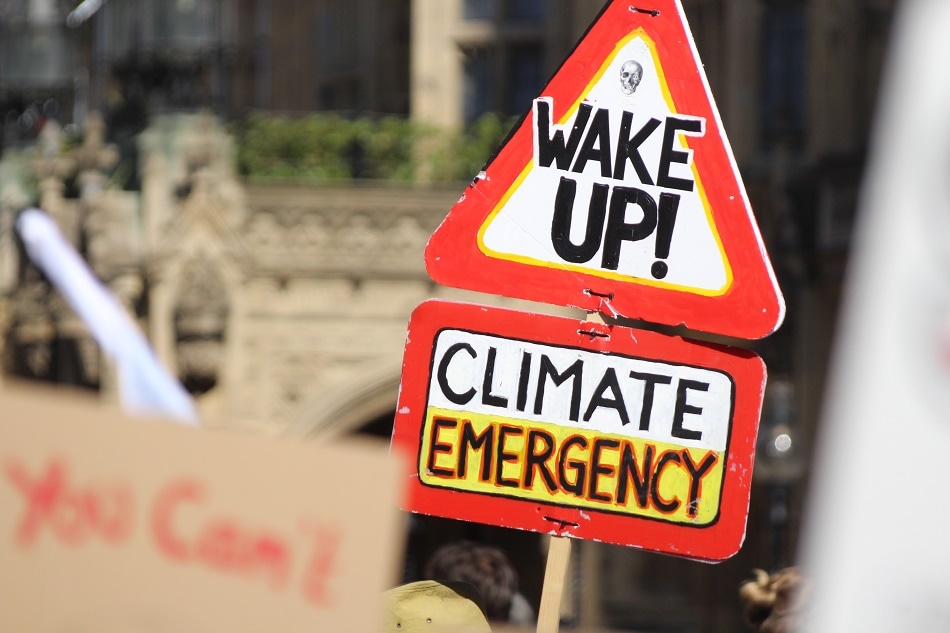
Image Credit: Diana Vucane/Shutterstock.com
For over 40 years warnings and predictions concerning the real dangers of climate change have been well documented. In February 1979, the World Meteorological Organization organized the First World Climate Conference in Geneva where scientists from over 50 nations discussed what could be done to prevent a climate catastrophe.
Now 40 years later, a climate emergency has been declared and according to a statement backed by 11,000 scientists, from 153 different nations, unless we take immediate action, we will bear witness to “untold human suffering.”
The statement, published in the journal BioScience, affirms that time is no longer on the side of humanity declaring, “The climate crisis has arrived and is accelerating faster than most scientists expected. It is more severe than anticipated, threatening natural ecosystems and the fate of humanity.”
The scientists endorsing the announcement believe the time for waiting has well and truly passed and that measures must begin right away in order to combat the climate crisis. The statement does not water down the severity of the issue, “We declare clearly and unequivocally that planet Earth is facing a climate emergency,” it states. “To secure a sustainable future, we must change how we live. [This] entails major transformations in the ways our global society functions and interacts with natural ecosystems.”
Some of the urgent changes the scientists believe are necessary include reducing the consumption of meat products, stopping deforestation, preventing population growth and moving away from fossil fuels to renewable energy sources. While there have been some positive outliers recently, such as an increase in renewable energy use and more awareness raised around the benefits of plant-based diets, there is still more work to do. The onus is on industry and governments to alter ways of production and implement new policies and legislation that help combat climate change.
Despite 40 years of major global negotiations, we have continued to conduct business as usual and have failed to address this crisis.
William Ripple, Professor of Ecology, Oregon State University
Although the factors that have led us to this moment of crisis have been well documented for the past four decades, meat consumption, air travel, deforestation, and carbon emissions are all on the rise.
Ripple was compelled to release the statement due to the increase of extreme weather events seen on the global stage. This is what he calls one of the “vital sign indicators” of a climate breakdown as he aims to illustrate a complete and true depiction of the emergency rather than just the data around carbon emission and surface temperature rise.
A broader set of indicators should be monitored, including human population growth, meat consumption, tree-cover loss, energy consumption, fossil-fuel subsidies and annual economic losses to extreme weather events.
Thomas Newsome, The University of Sydney
Therefore, unless action is taken in the here and now over the next couple of decades all of these contributing factors could lead to an irreversible domino-effect that results in a “hothouse Earth”, reaping total devastation across the lands and oceans. Other indicators of concern that indicate that we are close to the tipping-point include the rise in ocean temperatures, the rapid decline of the Arctic sea ice, the thinning of Antarctic ice sheets, and the melting of glaciers.
However, rather than only portray a bleak future the scientists have stated that they are encouraged by the surge of concern around the world including movements such as the Extinction Rebellion. "Schoolchildren are striking. Ecocide lawsuits are proceeding in the courts. Grassroots citizen movements are demanding change, and many countries, states and provinces, cities, and businesses are responding,” stated Ripple and Newsome.
Disclaimer: The views expressed here are those of the author expressed in their private capacity and do not necessarily represent the views of AZoM.com Limited T/A AZoNetwork the owner and operator of this website. This disclaimer forms part of the Terms and conditions of use of this website.